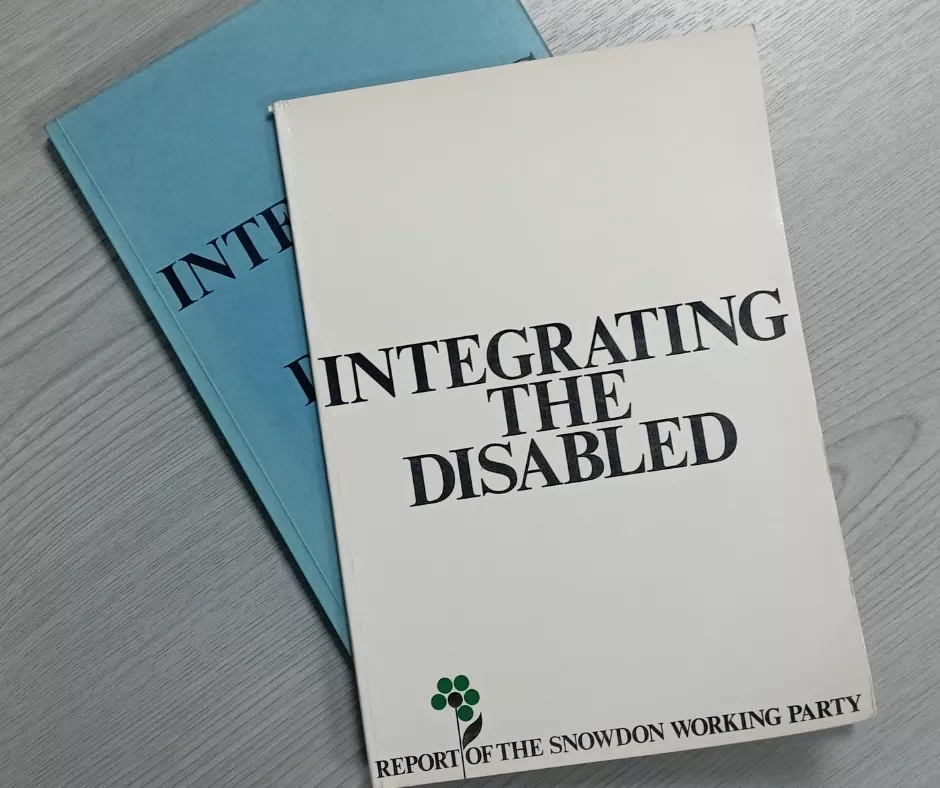Disabled Students UK’s latest report was created in collaboration with Pete Quinn Consulting and the BBSRC funded Oxford Interdisciplinary Bioscience Doctoral Training Partnership, and assesses the current situation for disabled PhD students in STEM. It recommends 4 solutions to improve the disabled student experience:
- Address gaps in the provision of individualised support and clarify which bodies are responsible
- Strengthen the crucial supervisor-supervisee relationship
- Make the physical and sensory environment more accessible
- Allow students to study at a pace that suits different bodies and minds

In light of this report, we spoke to a couple of doctorate students who have received Snowdon Trust support, to hear their insights on the report and their own experiences.
When I was accepted for my PhD role, I made sure that my supervisors flagged me to the disabled students services at my institution and have been supported by them throughout my studies. I think I am very lucky with the supervisors I have and the fact that I work in a disability research group certainly helps with them understanding my needs.
Adam, who is studying PhD Psychology, feels he had a positive experience in terms of the provision of the support he needs, and with his relationship with his supervisors. He does however echo the points in the report about how study environments are still not completely accessible, and shares his frustration on how slow this can be to change.
Desks are quite close together which results in my wheels being kicked on an almost daily basis. I get a lot of neuropathic pain, which can be triggered by someone kicking my wheels, so this can lead to me having to go home with pain issues. Another big issue is a lack of direction around who is responsible for my safety when the fire alarm goes off. There have been a few occasions where I have been left in the building by myself after everyone else has evacuated the building.
As a self-funded international student, the situation for Julie Ann, studying Science and Innovation Studies, has been much more challenging.
What self-funded means for me is that I am taking out an enormous amount of student loans and that means there’s a pressure on me to do my work as expeditiously as possible in order to not take out more funding than absolutely necessary. When I need an extension or have to take a break because of my illness or disability, the school doesn’t recognise that this is medical for me and I’m still charged over £11,000 a term.
She notes a lack of funding for disability services and lack of education for staff on how to treat students with a disability. She has faced discrimination and frequent microaggressions, and feels that even when supervisors understand a student’s needs, they aren’t equipped to put this support in place. Disabled students continue to carry the huge burden of advocating for their needs completely alone.
I don’t mind disclosing my disability or disclosing my needs, but where it becomes burdensome is when I have to generate a binder-full of documentation that includes years worth of scans, and letters, and “proof”. The worst part is that so much at the university is decentralised. When you need something in another department none of it transfers so you start all over again.
Julie Ann suggests two further solutions;
- Assess every student’s (disabled and non-disabled) needs when they join a university, so disabled students aren’t treated as an additional burden to the system. This would also benefit other student groups, such as those who have different learning styles and speakers of English as a foreign language
- There should be an outside force putting pressure on universities to make necessary changes in staff training and funding for disability services. This could be from a change in policy or a radical shift from funders
Until it’s brought to light and made very egregiously understood that this cannot continue… it will persist.
Disabled Students UK is the largest disabled student-led organisation in the UK, and is the number one change making organisation in the Shaw Trust Disability Power 100.
Find out more about the report, and access it in full here.


